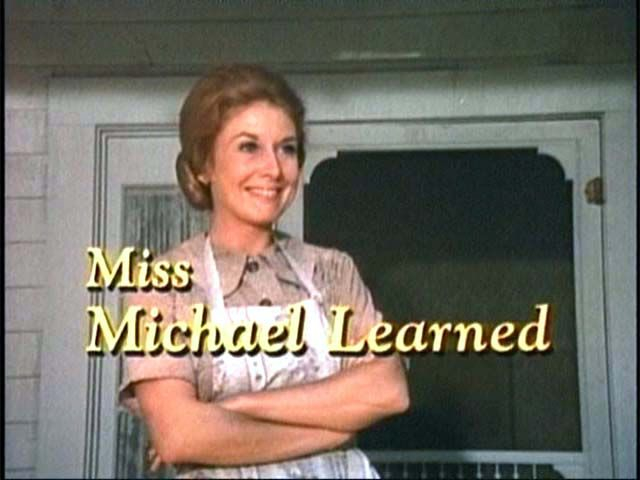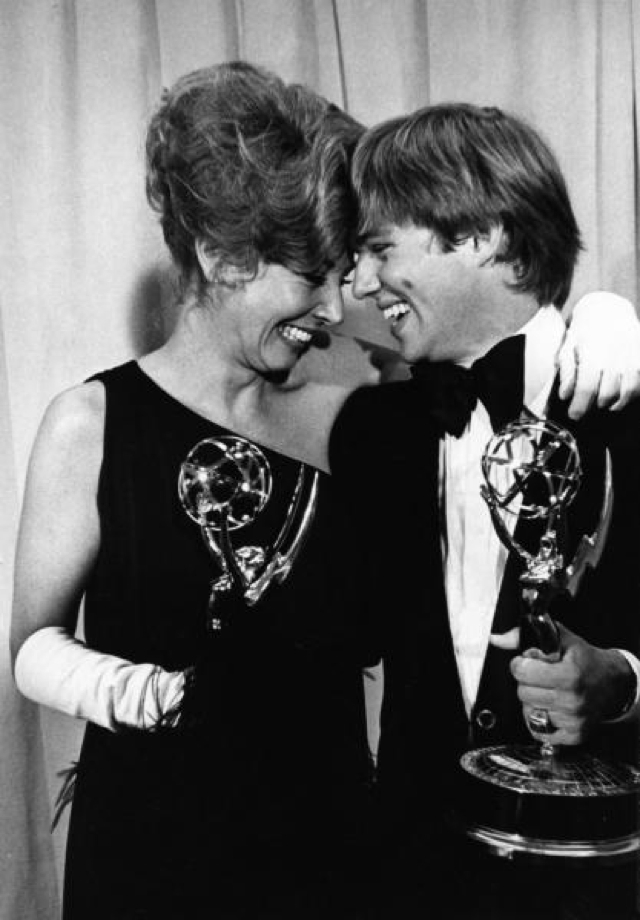Without a single quiver in her voice, she referred to the era in which she was married as “fraudulent. It was not an honest time. It was not… real.”
Michael Learned’s story is not necessarily one of uniqueness, given she was but one of many hundreds of thousands of women who fell into the home-economics trap that dictated a woman has to be relegated to a role that put her behind a man and in front of a stove. Her story remains important because I have always felt that it is imperative for the voices of the marginalized to be heard. For despite the story itself being unique or otherwise, one’s voice in the battle for equality is unique.
“Being a woman… What does it mean? I was the quintessential 50s wife — because I was married when I was seventeen and bought into that whole ‘how to be a good wife’ thing. It was completely false and my husband loved it,” she says dryly, chuckling at the last part. “People ask, ‘How did you raise three children in a role like that?’ and I always respond, ‘Three? I raised four children — my husband [actor Peter Donat] being the fourth and most difficult child of all. He was more demanding than my children ever were. And when asked how I did it, I always responded, ‘A lotta wine and a lotta meltdowns.'”
Resorting to inebriation and emotional collapses was sadly all too normal, acting as a binding commonality amongst married women of the time — which Learned credits acclaimed television series Mad Men to eerily replicating well, given that is has finally severed the depiction of married life during the 1950s and 60s from the all-too-perfect Coco-Cola ad and tying it to the darker truth that lurked behind the façade. Drinking, much like the character of Betty Francis on Mad Men, led her to “have the strength to divorce my husband. All the drinking may have made me more stupid, but in the end, it was needed to move forward.”

Michael Learned in her career-defining role on The Waltons as Olivia Walton.
One can’t judge her for being slightly facetious about the whole thing because, bluntly put, her honesty about it is frankly refreshing. And for anyone who has had to struggle with what their role in life is supposed to be, one’s relation to Michael suddenly becomes intimate. “I didn’t know who the hell I was,” she said, “I was about my children and I was about my husband, basically being a servant and a mistress at the same time.” In short, there lacked a partnership; instead, she was relegated to subserviency under the authority of her husband.
That dichotomous relationship plagued almost all women of the time — with, according to Michael, the exception of the Betty Freidans, the Clair Booth Luces, and Learned’s grandmother-in-law, who passed the Bar in the late 1800s. “There were always women who broke the mold but for the most part, the majority of us bought into that whole 50s nonsense — we didn’t really choose anything, just kind of went along. And while we’ve come a long way, we still have a long way to go.”
This is what she hopes to focus on when she appears at the California Women’s Conference: to emphasize her journey in becoming an equal person and how that journey is an ever-evolving one.
Her journey was, at least initially, a common one for women who felt duped by the overtly imagized concept of the nuclear family that ultimately led to a deep-seated repression. Given that she had no job when she left her children’s father after they had grown up, Michael was immensely alone. Not much long after her separation with her husband, in what could be nothing short than a strange alignment of the energy surrounding Michael, she stumbled into a definitive Hollywood television role that was entirely antithetical to what her own married life had been. And that role was the one of Olivia Walton on the classic series The Waltons, which earned Michael three Emmys.

Michael with fellow The Waltons actor Richard Thomas after their Emmy wins in 1972.
“I still cook dinner for my husband when he’s working,” she proudly said as she began to delve into the part the role of Olivia played in her own life. “And he cooks for me when I’m busy. It’s a partnership — and that’s what Olivia had. She had an appeal since she was initially part of the women’s liberation movement; not because she was a career woman but because she was a housewife that was a partner to her husband and not some subservient piece attached to her husband.”
Olivia soon became an immensely strong figure in Michael’s own perception of the world, guiding her to become not only more independent, but simply a better person. If there is one thing Michael emphasizes about her conception of womanhood, it is the fact that it is multi-faceted. Be it the businesswoman driven by success or the wife driven by a solid partnership with her spouse, Michael emphasizes that the common goal of equality — both socially and economically — cannot be driven by disparate definitions of feminism but by a gathering of all female perspectives.
“I am but one of many,” she said. “And I am not a militant feminist. At all. But I certainly am a feminist.” And perhaps it is that idea of having firm stances one believes in without being relegated to extremes that will push us all towards being the equal person that Michael herself so valiantly strives for.

